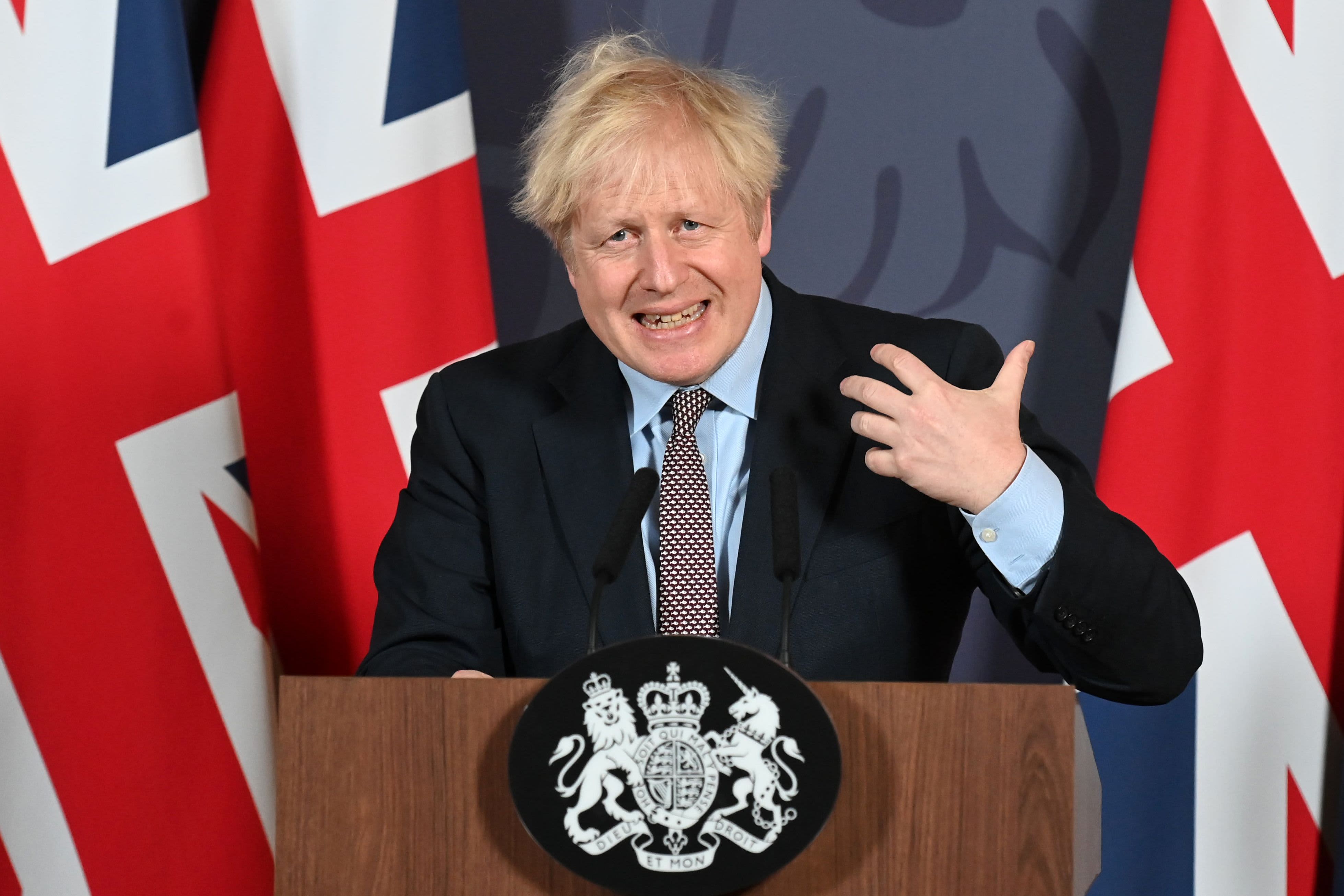
British Prime Minister Boris Johnson said England is adopting a national closure that he hopes will be tough enough to contain a new highly contagious variant of the Covid-19.
People can only leave home to buy basic items, work if they can’t from home, exercise, go to the doctor and escape domestic abuse, he said in an ad Monday evening. Elementary schools, high schools and colleges will also move to distance learning on Tuesday, except in rare cases, he said.
“I fully understand the inconvenience and anguish that this change will cause to millions of people and parents across the country,” Johnson said. “The problem is not that schools are not safe for children … the problem is that schools can act as vectors of transmission, causing the virus to spread among households.”
The UK’s top medical officials recommended that the country move to the “Level 5” alert level, meaning that if the country does not take this action, the capacity of the “National Health Service” can be overwhelmed in 21 days. Johnson said.
The changes come as the UK faces a more transmissible variant of Covid-19. To date, the country has reported more than 2.6 million cases of Covid-19 and more than 75,000 related deaths, according to data compiled by Johns Hopkins University.
On Monday, the UK registered 58,784 new cases and has now reported more than 50,000 new cases of coronavirus for seven days in a row.
“The death toll is 20% over the last week and unfortunately it will increase even more … With most of the country already under extreme measures, it is clear that we need to do more together to control this new variant while our vaccines are deployed “.
Johnson warned earlier Monday that the UK had “difficult weeks to come” and that there was “no doubt” that tougher measures would be implemented.
Prior to the announcement, more than three-quarters of England lived under “Tier 4” restrictions, the country’s toughest level of measures.
On Monday afternoon, Scottish leader Nicola Sturgeon announced from midnight a new home stay order for the country’s citizens. Schools in Scotland will remain closed until early February.
Kier Starmer, leader of the UK’s main Labor opposition party, tweeted on Sunday that Johnson “must put national restrictions in the next 24 hours”.
Coronavirus vaccines are the only bright spot in a pandemic that continues to swell across the UK and much of the West. On Monday, the UK launched the Oxford-AstraZeneca vaccine after launching the Pfizer / BioNTech feature in December.
“There’s a huge difference compared to last year. We’re now implementing the largest vaccination program in our history,” Johnson said.
If all goes well, Johnson said all first four priority groups should receive the first two-dose vaccine in mid-February. This includes residents in a care home and their caregivers, all those over the age of 70, all front-line social and health workers, as well as all those who are clinically vulnerable, he said.
“If we manage to vaccinate all these groups, we will have eliminated a large number of people from the path of the virus. And, of course, this will allow us to end many of the restrictions we have endured for so long,” he said.
The UK government has decided to implement a 12-week delay between the first and second doses of the Pfizer-BioNTech and Oxford-AstraZeneca coronavirus vaccines, to try to cover as much of the population as possible.
The UK’s independent scientific advisory group for emergencies said on Sunday it supported the decision, with conditions, but the British Medical Association has criticized the UK’s decision to delay the second dose.